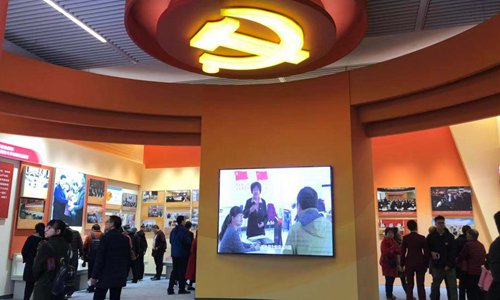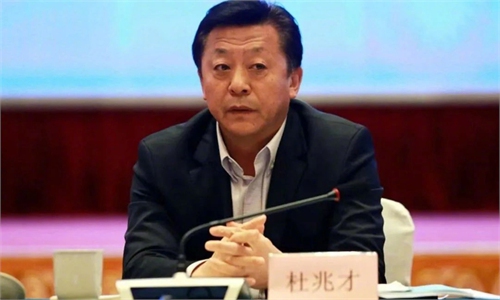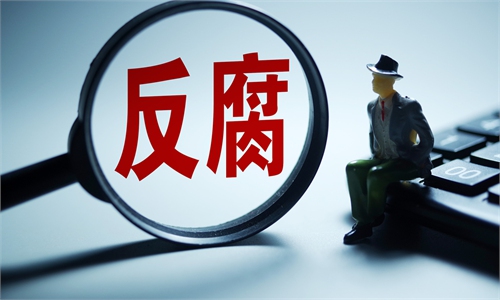17 centrally administered Chinese officials investigated in 100 days amid 'unprecedented' anti-graft campaign

People visit the anti-corruption hall at the National Museum on Thursday in Beijing. Photo: Luo Yunzhou/GT
China's top anti-graft body has been pushing forward the crackdown on corruption, with at least 17 centrally administered officials being investigated in about 100 days since the beginning of 2023, which experts believed showed the country's "unprecedented" determination in its anti-corruption campaign.
From January 6 to April 16, at least 17 centrally administered officials have been put under investigation, with seven - the highest number - investigated in March, according to the official website of the Communist Party of China (CPC) Central Commission for Discipline Inspection and the National Supervisory Commission.
Some of them are from state-owned enterprises administered by central authorities, financial institutions and the sports sector, including Li Xiaopeng, former Party chief and chairman of China Everbright Group; Liu Lian'ge, former Party chief and chairman of the Bank of China; Li Dong, former deputy general manager of the China Energy Investment Corp, and Du Zhaocai, former vice head of the General Administration of Sport of China (GAS).
The endeavors in deepening anti-corruption work and building a clean government have been fully pushed forward, showing China's "unprecedented" determination and firmness in the fight against corruption, Zhang Xixian, a professor at the Party School of the CPC Central Committee, told the Global Times on Monday.
Implementing the spirit of the 20th CPC National Congress, the Party started the work in three key sectors this year - finance, centrally administered state-owned enterprises and sports, Zhang noted.
The facts have proved that after decades of fighting against corruption and building a clean government, the country's anti-graft authorities have kept improving their capability in detecting and solving problems in a timely manner, and they have taken the initiative in the fight against corruption, Zhang said.
Among the 17 officials under investigation, some of them have been investigated after they retired, left office or resigned from their original posts. He Zehua, former deputy director of China's State Tobacco Monopoly Administration, has been placed under investigation for suspected severe violations of Party discipline and laws, according to an official statement by the top anti-graft body in January this year.
He stepped down as deputy director of China's State Tobacco Monopoly Administration in March 2014, and was put under investigation nearly nine years after retiring, according to media reports.
This showed the Party's "firm and unwavering determination" to combat corruption, according to Zhang.
As of April 8, a total of 15 teams of disciplinary inspectors had been assigned to positions on the ground, which was the first round of disciplinary inspections launched by the 20th Central Committee of the CPC, targeting 30 centrally administered state-owned enterprises, five financial agencies, and the GAS.


